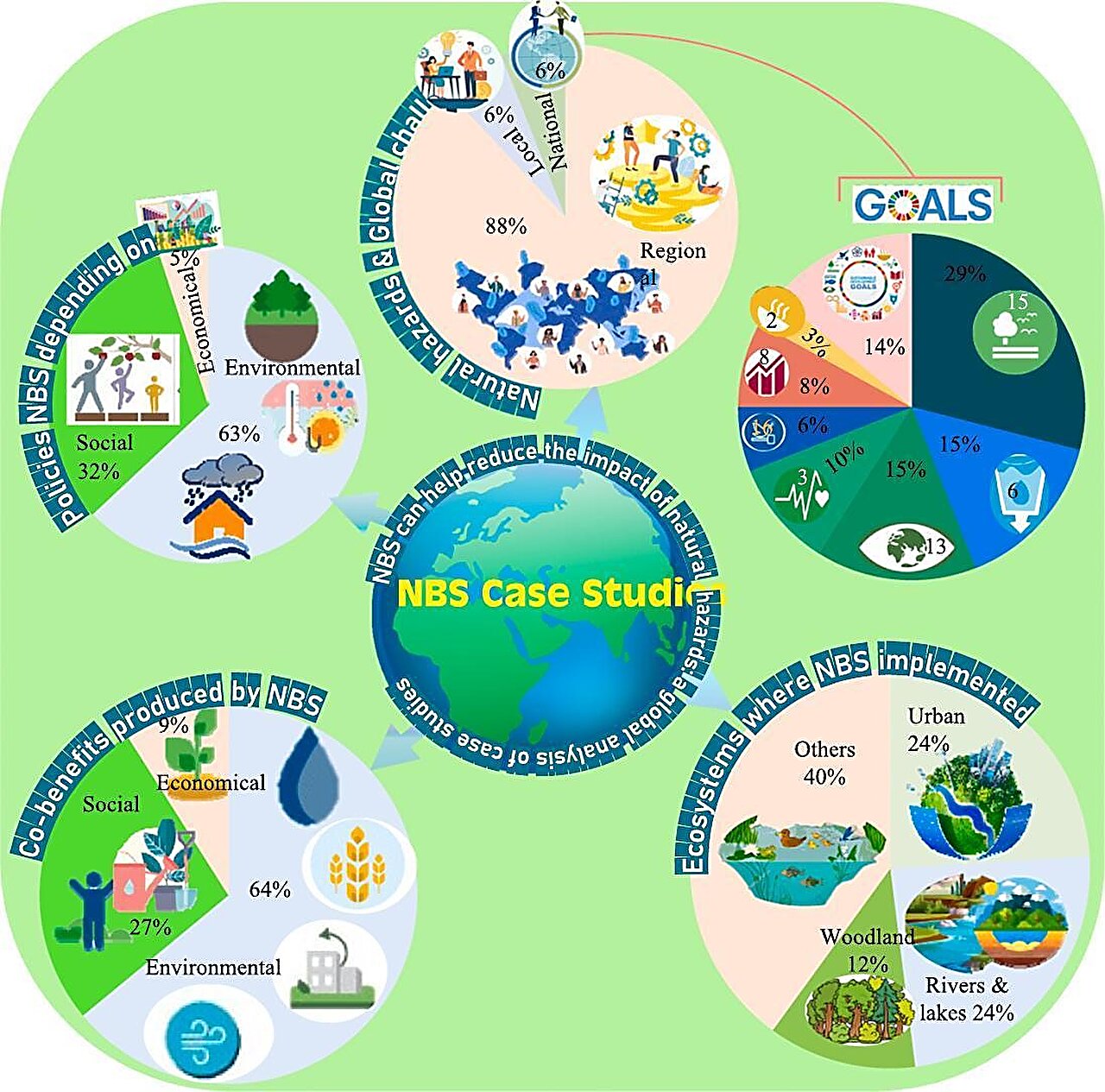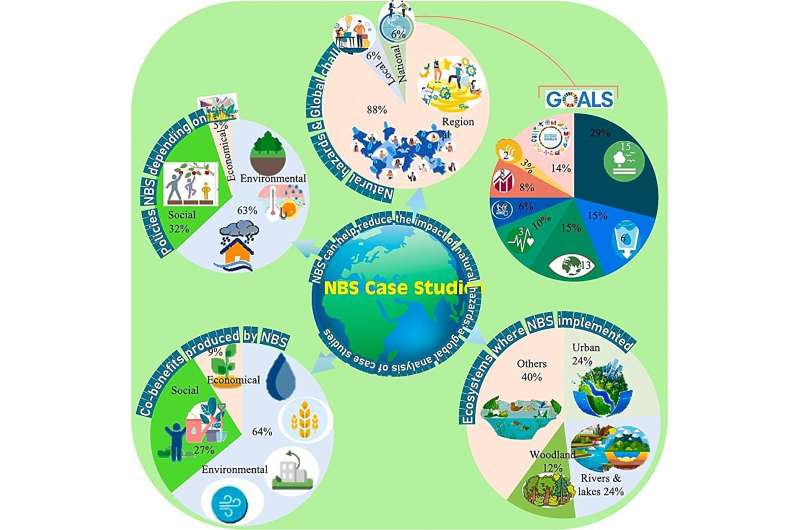

Nature-based solutions (NBS) can help grand challenges, such as climate change and food security, but, as things stand, communities outside of Europe do not stand to benefit from these innovations. New research from the University of Surrey has found that more than 60% of NBS are located in Europe, with other regions showing poor use of the technologies.
The research found that 33% of NBS were what are known as green solutions. These can include urban green spaces such as parks, green roofs, and green walls that can provide cooling and shade, absorb rainfall, and improve air quality.
A significant proportion (31%) of NBS were hybrid solutions. These can include green roofs that incorporate solar panels or rainwater harvesting systems to capture and use rainwater.
Professor Prashant Kumar, Director of the Global Centre for Clean Air Research (GCARE) and corresponding author of the study, said,
“The good news is that we found a wealth of evidence of more communities successfully adopting nature-based solutions to not only deal with climate change and hazards but societal issues such as water and food security. What is very concerning is that we found a lack of evidence of authorities or organizations investing in nature-based solutions for vulnerable communities outside of Europe.”
The team from GCARE analyzed the implementation of more than 500 NBS case studies from across the globe. They found more than 88% of them were supported by national policies, which ensured the financial viability of the NBS.
The most common use of NBS was to address water-based hazards such as floods and landslides. This accounted for 45% of all case studies.
The second most common type of hazard addressed by NBS was meteorological/climatological hazards like heatwaves and droughts, which accounted for around 30% of the case studies. Around 24% of the case studies were focused on environmental hazards like soil degradation and air pollution. Fire hazards were the least common type of hazard addressed by NBS, accounting for only around 1% of the case studies.
Professor Kumar said, “We believe that as much as 68% of the case studies we analyzed addressed UN Sustainability goals for life on land, climate action and clean water. Imagine the impact these innovations could have if they were implemented in our most vulnerable communities.
“This is why we believe that knowledge transfer must be near the top of the agenda so we can all benefit from the transformational benefit of nature-based solutions.”
The study was published in Science of the Total Environment.
More information:
Sisay E. Debele et al, Nature-based solutions can help reduce the impact of natural hazards: A global analysis of NBS case studies, Science of The Total Environment (2023). DOI: 10.1016/j.scitotenv.2023.165824
Provided by
University of Surrey
Citation:
Nature-based solutions can help tackle climate change and food security, but communities outside Europe are missing out (2023, August 1)
retrieved 2 August 2023
from https://phys.org/news/2023-08-nature-based-solutions-tackle-climate-food.html
This document is subject to copyright. Apart from any fair dealing for the purpose of private study or research, no
part may be reproduced without the written permission. The content is provided for information purposes only.